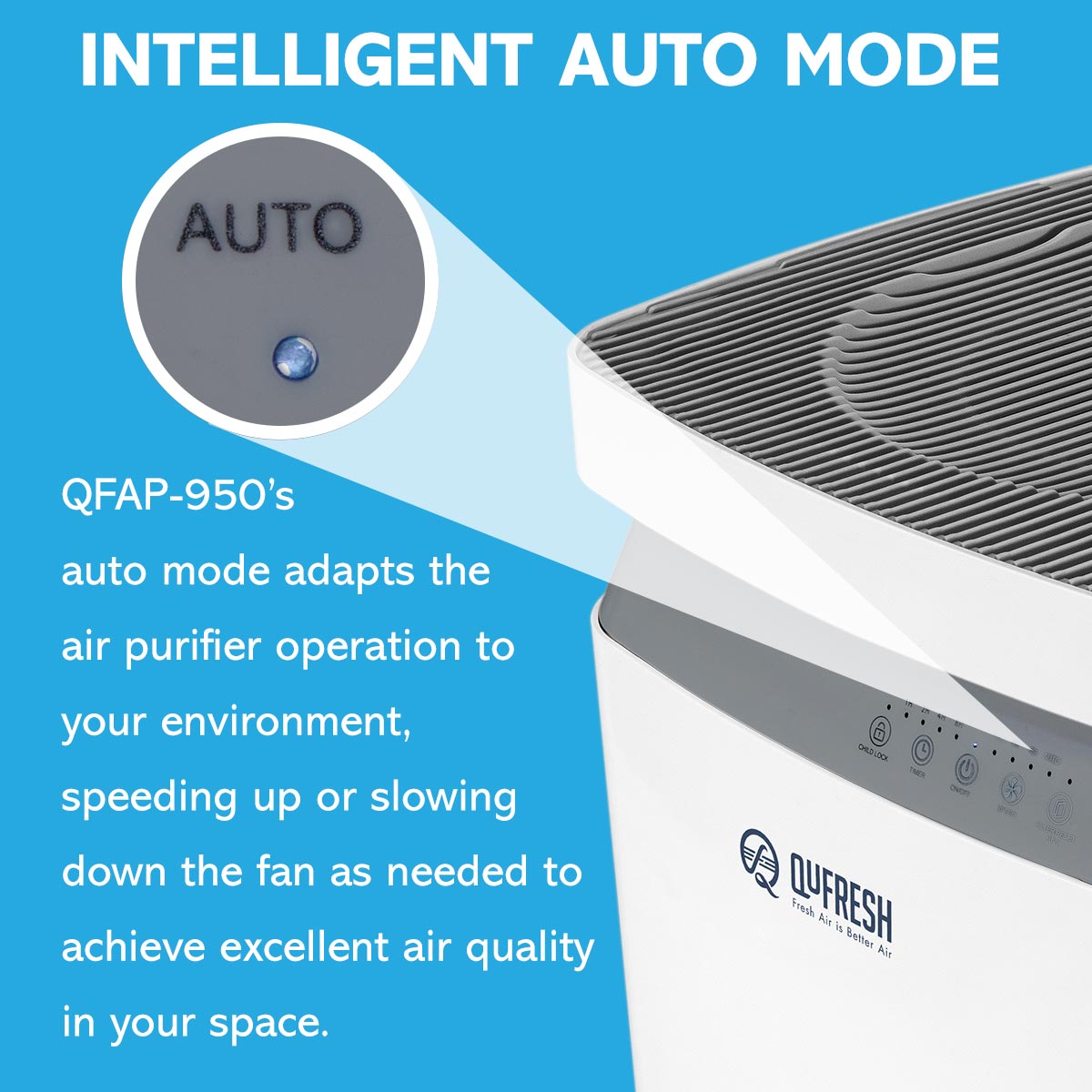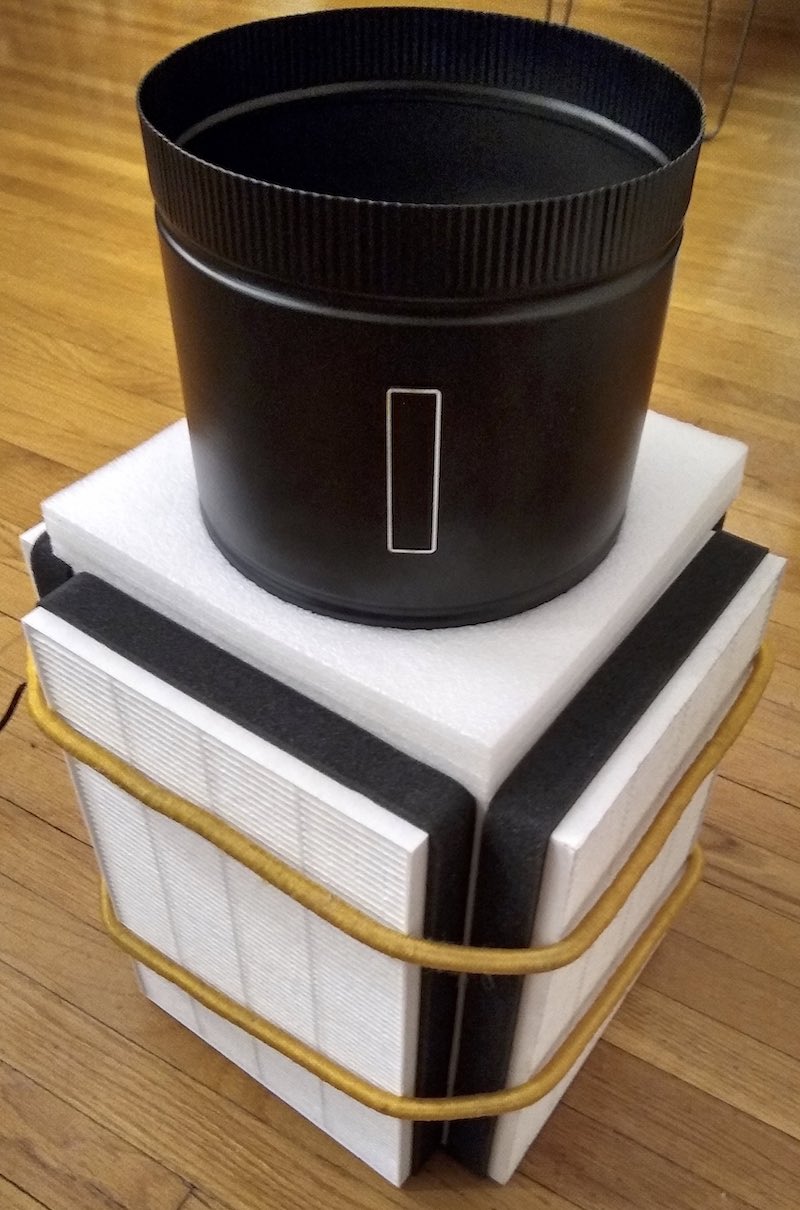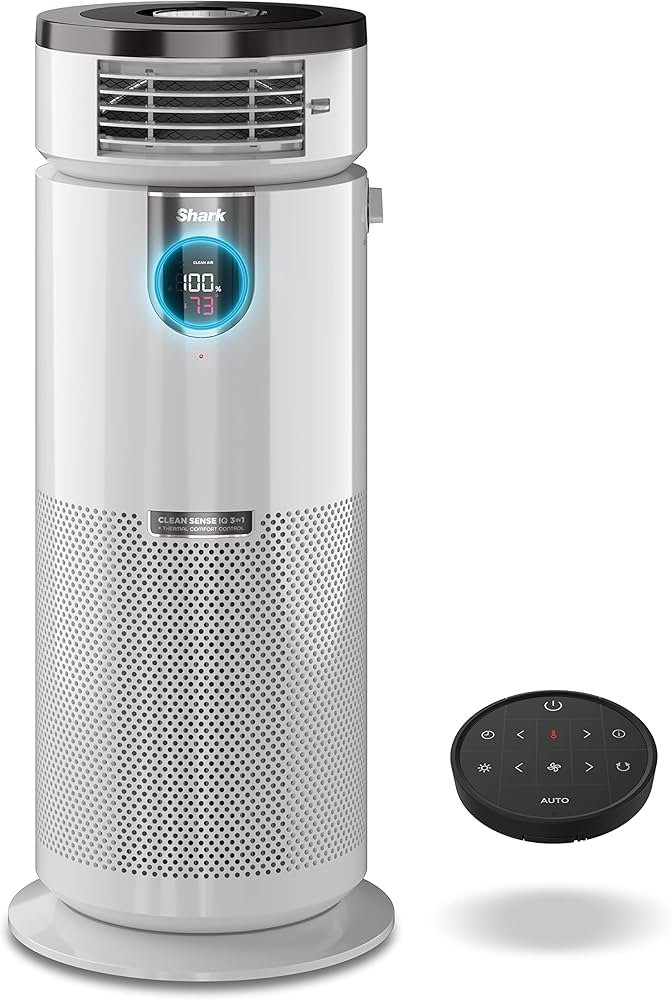Your air purifier’s fan slowing down can be puzzling. It affects air quality and efficiency.
Why does this happen? Air purifiers work hard to keep your air clean. When the fan slows down, it can be a sign of underlying issues. It might be due to filter clogs, motor problems, or even electrical issues. Understanding these reasons helps maintain your purifier’s performance.
In this blog, we will explore common causes and solutions for a slow fan. This knowledge ensures your air remains fresh and healthy. Let’s delve into why your air purifier’s fan might be slowing down and how to fix it.

Credit: usfanco.com
Air Purifier Basics
Air purifiers are essential devices for maintaining indoor air quality. They help remove pollutants, allergens, and other harmful particles from the air. Understanding their basics can help you troubleshoot issues like a slow fan.
Purpose Of Air Purifiers
The primary purpose of air purifiers is to clean indoor air. They target contaminants like dust, pollen, smoke, and pet dander. By removing these particles, air purifiers help improve health and comfort.
How Air Purifiers Work
Air purifiers use filters to trap harmful particles. The most common type is the HEPA filter. HEPA filters capture small particles, making the air cleaner. Some air purifiers also have carbon filters. These filters remove odors and gases.
Air purifiers work by drawing air through the filters. The fan plays a crucial role in this process. A slow fan can reduce the efficiency of the purifier. Regular maintenance is key to ensuring your air purifier works well.
Understanding Fan Speed
Many people wonder, “Why does my air purifier’s fan slow down?” Understanding fan speed is key to addressing this concern. The fan speed in an air purifier affects its performance. It can vary based on several factors. Knowing these can help you maintain your device better.
Importance Of Fan Speed
Fan speed directly impacts the air purifier’s efficiency. Higher speeds move air faster, cleaning the room more quickly. Lower speeds are quieter but less effective at removing pollutants. Balancing speed and noise is essential for optimal use.
Normal Fan Speed Variations
Air purifiers may change fan speed automatically. This depends on the air quality detected. For example, poor air quality may cause the fan to run faster. Once the air improves, the fan slows down. This is a normal function of many modern air purifiers. Manual settings may also affect fan speed. Always check if the device is set to auto or manual mode.
Clogged Filters
Clogged filters can slow down your air purifier’s fan. Filters trap dust, pollen, and other particles. Over time, these particles build up. This buildup restricts airflow. The fan works harder. Eventually, it slows down.
Signs Of Clogged Filters
Are you wondering if your air purifier’s filters are clogged? Here are some signs:
The purifier is louder than usual. You hear the fan struggling. The airflow is weaker. The air quality in your home worsens. You may also notice an unpleasant smell. These signs indicate clogged filters.
How To Clean Or Replace Filters
Cleaning or replacing filters is important. It keeps your air purifier working well. First, turn off and unplug the device. Check the user manual for instructions. Some filters are washable. Wash them with water. Let them dry completely before reinstalling.
If the filter is not washable, replace it. Buy the correct filter for your model. Follow the manual’s steps for replacing the filter. Regular maintenance keeps your air purifier efficient. This helps ensure clean air in your home.
Sensor Issues
Sensor issues in an air purifier can cause the fan to slow down. Sensors play a crucial role in monitoring air quality. They help adjust the fan speed to match the current air conditions. If the sensors malfunction, your air purifier may not work as it should. Understanding common sensor problems and how to reset and calibrate them can help.
Common Sensor Problems
Dust and dirt can clog the sensors. This prevents them from reading air quality correctly. Another common issue is sensor wear and tear. Over time, sensors can degrade and lose accuracy. Electrical issues can also cause sensor problems. Loose connections or faulty wiring may disrupt sensor function.
Resetting And Calibrating Sensors
Resetting your air purifier’s sensors can sometimes solve the problem. Turn off your device and unplug it. Wait a few minutes before plugging it back in. Turn it on and check if the fan speed is normal. If not, consider calibrating the sensors.
Calibrating sensors involves following the manufacturer’s instructions. This process usually includes running the air purifier in a controlled environment. It allows the sensors to readjust to the air quality. Make sure to clean the sensors regularly to maintain their accuracy.
Power Supply Problems
One common reason for an air purifier’s fan to slow down is power supply problems. If the power supply is inconsistent, the fan may not receive enough electricity to run at full speed. Understanding and addressing these power supply issues can help restore your air purifier’s performance.
Checking Power Connections
First, ensure that the air purifier is properly plugged in. Loose or faulty connections can disrupt the power supply. Check the power cord for any visible damage. Damaged cords may need replacing to ensure a stable power connection. Also, verify that the outlet is functioning correctly. Plug another device into the same outlet to see if it works. This simple check can help rule out outlet issues.
Dealing With Voltage Fluctuations
Voltage fluctuations can affect the fan speed of your air purifier. These fluctuations can occur due to various reasons, including electrical surges. To protect your air purifier from voltage fluctuations, use a surge protector. A surge protector can help maintain a consistent power supply. It will ensure that your air purifier receives the right amount of electricity. If you live in an area prone to voltage fluctuations, this step is crucial. Additionally, consider using a voltage stabilizer for added protection.

Credit: www.amazon.com
Motor Malfunctions
Motor malfunctions are a common cause of an air purifier’s fan slowing down. A malfunctioning motor can affect the performance of your air purifier. Understanding the signs of motor issues and knowing how to address them can help you maintain your device’s efficiency.
Identifying Motor Issues
To identify motor issues, listen for unusual sounds from the air purifier. A slow fan or odd noises can signal motor problems. Check the air purifier’s power supply. Ensure it is plugged in correctly and receiving power.<p
Examine the motor for visible damage. Look for burned spots or loose connections. If you find any of these signs, the motor may be malfunctioning.
Use a multimeter to test the motor’s electrical components. This tool can help you measure voltage and resistance. A faulty reading indicates a motor problem.
Repairing Or Replacing The Motor
If the motor shows signs of damage, you might need to repair or replace it. Start by turning off the air purifier and unplugging it. This step ensures your safety during the process.
To repair the motor:
- Remove the air purifier’s casing to access the motor.
- Inspect the motor for loose wires or connections.
- Tighten any loose wires and reassemble the air purifier.
If the motor is beyond repair, consider replacing it. Follow these steps:
To replace the motor:
- Find a compatible motor for your air purifier model.
- Remove the old motor and disconnect all wires.
- Install the new motor and reconnect the wires.
- Reassemble the air purifier and test it to ensure proper function.
By addressing motor malfunctions promptly, you can keep your air purifier running efficiently.
“`Environmental Factors
Environmental factors play a significant role in the performance of your air purifier. These factors can affect the speed of the fan. Understanding these influences helps you maintain your air purifier efficiently. Let’s explore the key environmental factors.
Temperature And Humidity Effects
Temperature changes can impact your air purifier’s fan speed. High temperatures may cause the fan to slow down. This is because the device works harder to cool itself. Similarly, low temperatures can also affect fan efficiency.
Humidity levels also matter. High humidity can cause moisture to build up inside the purifier. This can slow down the fan. In contrast, very dry conditions may lead to static build-up. This can interfere with the fan’s operation.
Dust And Debris Impact
Dust and debris can clog the air purifier’s filters. This makes the fan work harder to circulate air. Over time, this can lead to a slower fan speed. Regular cleaning of filters is essential to avoid this issue.
Particles like pet hair, pollen, and smoke can also accumulate. These particles can block the airflow. This reduces the fan’s effectiveness and slows down its speed. Keeping the surrounding area clean helps maintain the purifier’s efficiency.
Maintenance Tips
Maintenance is key to keeping your air purifier running smoothly. Regular care ensures your device functions at its best. Proper maintenance also prevents the fan from slowing down. Here are some essential tips to maintain your air purifier.
Regular Cleaning Routines
Dust and debris accumulate over time. Clean the air purifier’s filters regularly. Follow the manufacturer’s instructions for cleaning. Use a soft brush or cloth to remove dust. Replace filters as recommended. A clean filter improves airflow and efficiency.
Don’t forget to clean the exterior. Wipe it with a damp cloth. Ensure the air vents are clear. Obstructed vents can cause the fan to slow down. Keeping vents clear helps maintain optimal airflow.
Prolonging Air Purifier Lifespan
Regular maintenance extends your air purifier’s lifespan. Avoid placing the device in dusty or damp areas. Keep it away from direct sunlight and heat sources. Proper placement helps maintain its efficiency.
Check for loose parts or unusual noises. Address any issues promptly. Regularly inspect the power cord. Ensure it is not damaged. A well-maintained air purifier runs longer and more efficiently.
Follow these tips to keep your air purifier in top condition. Regular care ensures a clean and healthy environment. Your device will work efficiently, providing you with fresh air.

Credit: dynomight.net
Frequently Asked Questions
Why Does My Air Purifier’s Fan Speed Vary?
The fan speed of your air purifier can vary due to changing air quality. Sensors detect pollutants and adjust speed to clean the air effectively.
Is It Normal For Air Purifier Fan To Slow Down?
Yes, it is normal. When air quality improves, the fan slows down to save energy and reduce noise.
How Can I Fix A Slow Air Purifier Fan?
Ensure the filter is clean and properly installed. Check for obstructions. If the problem persists, consult the user manual or contact customer support.
Does A Dirty Filter Affect Fan Speed?
A dirty filter can restrict airflow, causing the fan to slow down. Regularly clean or replace filters to maintain optimal performance.
Conclusion
A slow air purifier fan can be frustrating. Common causes include dirty filters and blocked vents. Regular maintenance helps keep your air purifier running smoothly. Clean or replace filters as needed. Check for obstructions around the unit. These steps can ensure better performance.
A well-maintained air purifier improves indoor air quality. Keep an eye on your device and address issues promptly. Your health and comfort depend on it. By understanding these factors, you can enjoy a cleaner, fresher home environment.
Rakib Sarwar is a Registered Pharmacist and a reputed health and wellness blogger. He has a great interest in Air purifiers.
